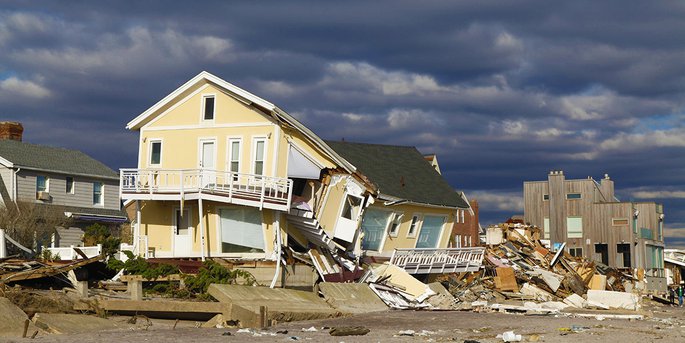Albany Herald Op-Ed By John Huff and Stefanie Sekich-Quinn
This hurricane season we are preparing to endure record-setting levels of activity. Due to the worsening effects of climate change, we can expect to see more frequent and severe hurricanes this season.
Between 2019 and 2021, natural disasters have incurred billions of dollars in damages and losses, and that number is likely to grow. Scientists have recently reported that the most devastating storms on the planet could more than double by 2050 in nearly all regions of the world due to climate change. While these figures forecast what is to come globally, it is important to highlight that the burdens of these increasingly devastating natural disasters will impact some of the world’s most vulnerable regions.
In September of 2018, Hurricane Florence disproportionately ravaged communities of color, not to mention the fact that they were continuing to try to rebuild, still recovering from the effects of Hurricane Matthew two years prior. The path of these extreme weather events does not affect everyone equally, as we have seen in this era of climate change that continues to exacerbate the damages caused by natural disasters in communities of color.
The fact that hurricanes and typhoons are responsible for more monetary losses than any other natural disaster necessitates measures that are preventative rather than reactionary. Along with ravaging vulnerable coastal communities, taxpayers all across the U.S. will have to deal with the increasing price tag as seasons continue to worsen.
The total cost of hurricane damages in 2021 was $145 billion, making it the third-most-costly year on record behind 2017 and 2005. The Climate RESILIENCE Act, sponsored by Rep. Earl Blumenauer, would be an effective solution due to its emphasis on developing climate-resilient infrastructure across all communities. Additionally, it promotes an equitable use of pre-disaster mitigation funds and requires resiliency goals to be included in states’ mitigation plans.
We must find ways to incentivize investment in pre-disaster and climate adaptation mitigation efforts to save lives and protect taxpayer dollars and federal facilities. Framing climate change in the context of natural disaster mitigation is imperative to moving forward and protecting communities of color, saving billions of dollars in the process, and giving them a chance to rebuild with resilient methods and permanently move forward.
Aside from the moral imperative to save lives through pre-disaster mitigation efforts, it is also a fiscally responsible decision that can save up to $13 for every $1 spent by U.S. taxpayers. The Built to Last Act, co-sponsored by Senator Tammy Baldwin and Marco Rubio, would include improving infrastructure resiliency in all communities and begin to rectify long-seen disparities in how communities of color begin to rebuild. We can also look to more short- to medium-term solutions such as supporting additional climate-resilient housing in low-income communities.
It is necessary to prioritize hurricane preparedness and encourage policymakers to take action through legislation such as the Climate RESILIENCE Act and the Built to Last Act. These pieces of legislation will ensure that our transportation systems, water and wastewater systems, government buildings, and power lines in these minority communities are climate-resilient and prepared to handle the intensifying future of natural disasters.
While highlighting hurricane preparedness, we must prioritize spreading awareness about the most disastrous of natural disasters and highlight critical measures to protect our communities, starting with educating our neighbors about what steps they can take to protect themselves. One call to your neighbors could result in a much more effective hurricane preparedness strategy, and potentially even save their lives.
While these efforts may mitigate hurricane-induced damage in the short-term, a more long-term solution in the form of policy actions must be prioritized. Only then can disaster mitigation be effectively and sustainably addressed.
John Huff is president and CEO of the Association of Bermuda Insurers and Reinsurers, and Stefanie Sekich-Quinn is coast and climate initiative senior manager at the Surfrider Foundation.

